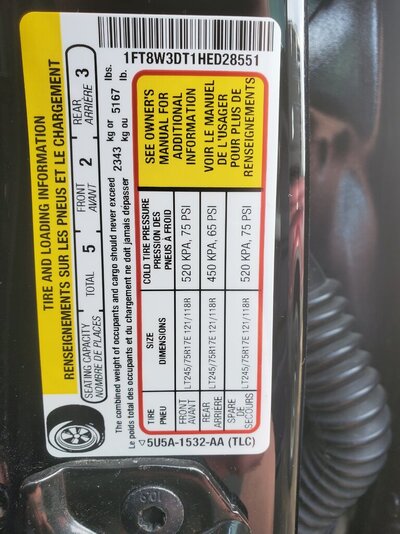scottydl
Site Team
Although that particular salesman's advice was not "bad" per se, use great caution in believing anything they tell you about tow capacity. Their job is to sell you a trailer, and not to make sure the towing experience is a good one.
That "carry stuff in the bed" number is called payload... i.e. weight pushing down on the truck, which for RVing is the tongue weight of the trailer. That is separate than the towing capacity, which is what's being pulled in a forward motion by the truck.
Even if you do have a 9500-12,000 towing capacity (and narrowing down that range depends on various features of your truck), that's a different dynamic than the length of the trailer. 32' is going to stretch the capacities have most half ton trucks like your 1500, regardless of weight. It's because manufacturer advertised towing is done with something like a flatbed load of bricks, and not a giant empty box that picks up every breeze or draft from a passing car and blows side to side. That's what makes RV trailers different, and generally you'll want to stay below the 30' range to have a comfortable towing experience with that truck.
That "carry stuff in the bed" number is called payload... i.e. weight pushing down on the truck, which for RVing is the tongue weight of the trailer. That is separate than the towing capacity, which is what's being pulled in a forward motion by the truck.
Even if you do have a 9500-12,000 towing capacity (and narrowing down that range depends on various features of your truck), that's a different dynamic than the length of the trailer. 32' is going to stretch the capacities have most half ton trucks like your 1500, regardless of weight. It's because manufacturer advertised towing is done with something like a flatbed load of bricks, and not a giant empty box that picks up every breeze or draft from a passing car and blows side to side. That's what makes RV trailers different, and generally you'll want to stay below the 30' range to have a comfortable towing experience with that truck.

